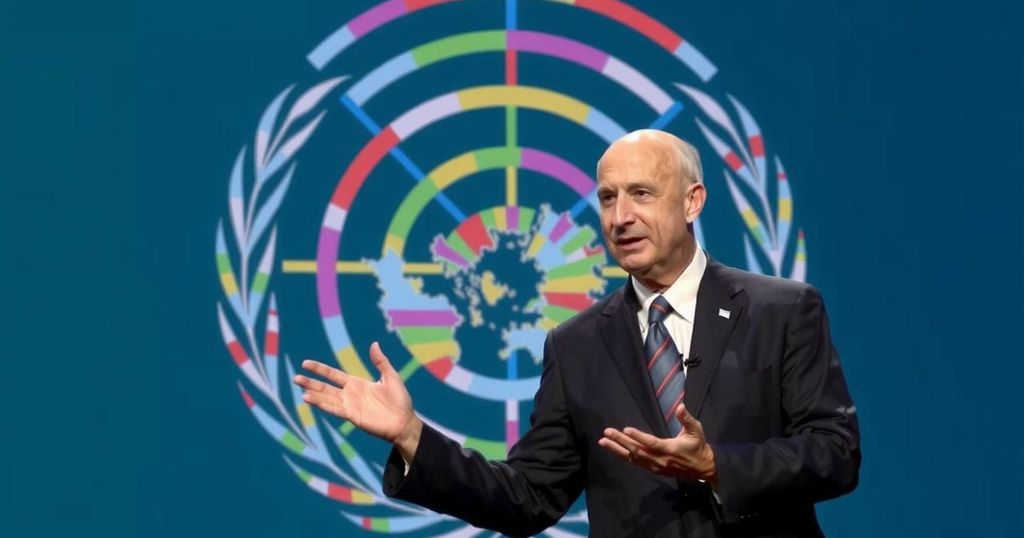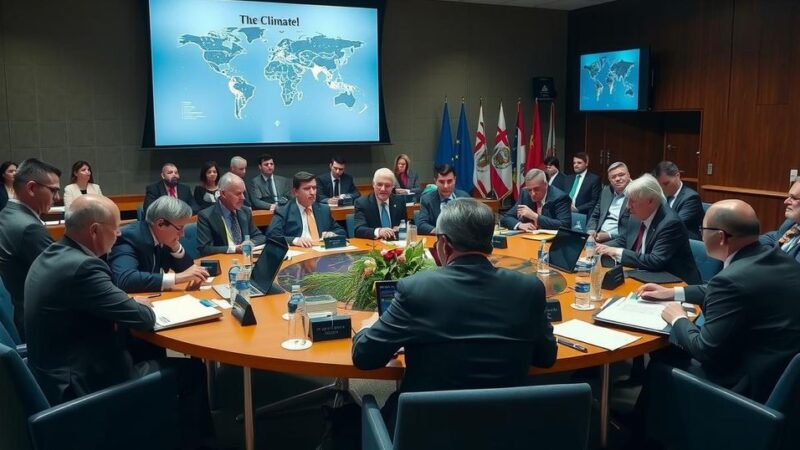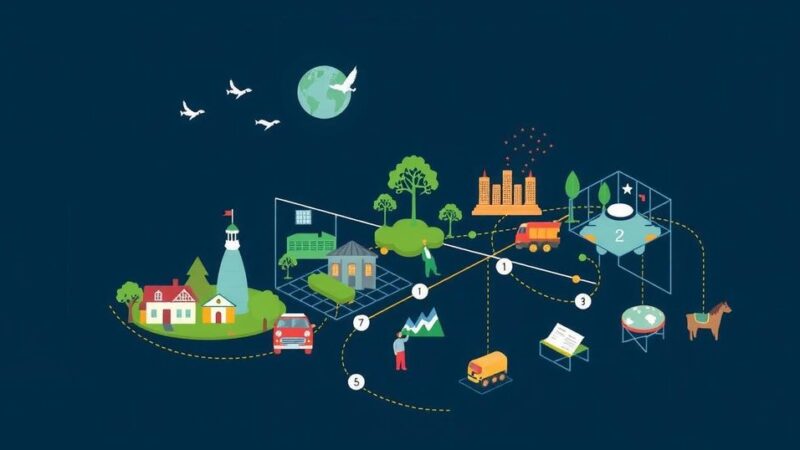Ajay Banga, President of the World Bank, assured that the institution’s climate goals will remain intact irrespective of the November US presidential election outcome, citing a rise in climate financing commitments. Banga emphasized that smart development, including climate-resilient infrastructure, remains essential. He expressed confidence that both past and future administrations will recognize the importance of climate action and global economic interdependencies.
The President of the World Bank, Ajay Banga, expressed confidence that the institution’s climate initiatives are secure regardless of the outcome of the upcoming US presidential election. In a recent interview with AFP, Banga emphasized that the World Bank’s climate policies exemplify “smart development” and stated that the organization is committed to increasing its climate financing from 35 percent to 45 percent of its total lending by the financial year’s end in June 2025. Notably, last year, the Bank was on the verge of reaching this target and is anticipated to surpass it this year. In light of former President Donald Trump’s lower prioritization of climate issues, Banga was optimistic about the continuity of the World Bank’s climate objectives, asserting that the more proactive approaches to climate resilience—such as constructing infrastructures that can endure adverse climate conditions—will remain essential for any administration. Banga also articulated the interconnectedness of global energy access and economic growth, noting that expanding electricity access in Africa could inadvertently benefit economies in nations like the United States and Europe. He underscored that supporting renewable energy projects worldwide is mutually beneficial, stating,”We’re kind of in this together, and most administrations will see it that way.”
The World Bank, as a key international financial institution, plays a critical role in addressing global economic and environmental challenges. Recently, its leadership has concentrated on enhancing climate financing to combat climate change through sustainable development initiatives. The upcoming US presidential election, juxtaposed against a backdrop of fluctuating political support for environmental policies, raises pertinent questions regarding the continuation of climate-related commitments from institutions like the World Bank. The commentary from the World Bank President sheds light on the resilience of these policies amidst potential shifts in the political landscape.
In conclusion, the World Bank’s commitment to increasing climate financing to 45 percent by 2025 reflects a steadfast approach to integrating climate resilience into development practices. World Bank President Ajay Banga’s remarks underscore the importance of maintaining proactive climate strategies, despite potential political changes in the United States. His insights also highlight the beneficial dynamics of global electricity access and economic interdependence, further reinforcing the notion that collaborative efforts in climate action can lead to mutual prosperity.
Original Source: www.barrons.com






